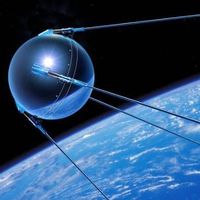SGU Episode 604
| This episode needs: transcription, formatting, links, 'Today I Learned' list, categories, segment redirects. Please help out by contributing! |
How to Contribute |
| SGU Episode 604 |
|---|
| February 4th 2017 |
 |
| (brief caption for the episode icon) |
| Skeptical Rogues |
| S: Steven Novella |
B: Bob Novella |
C: Cara Santa Maria |
J: Jay Novella |
E: Evan Bernstein |
| Quote of the Week |
Scientists are just as bad as the rest of the public in following fads and being influenced by mass enthusiasm. |
| Links |
| Download Podcast |
| Show Notes |
| Forum Discussion |
Introduction
- Jay talks to his son about death
You're listening to the Skeptics' Guide to the Universe, your escape to reality.
Forgotten Superheroes of Science (7:15)
- Rudolf Diesel: Rudolf Diesel, 1858-1913, patented the Diesel engine
News Items
Human Pig Chimera (13:10)
Life Review Experience (27:03)
Communicating with the Locked In (33:08)
Commercial at 48:08)
Homeopathic Teething Products (49:32)
Metallic Hydrogen (55:19)
Who's That Noisy (1:06:58)
- Answer to last week: Sputnik
Questions and Emails
Question #1: Gravity and Centrifugal Force (1:12:07)
My question relates to gravity on earth in relationship to the rotation of the earth. I would assume that a person standing on the equator would weigh more than if than same person was standing on one of the poles. It seems to me if a person was traveling roughly 1000 miles an hour in a circle the cintrifical force would be enormous and without that force it seems a person would be crushed at the poles. I know this isn't the case because people have visited the poles without being crushed. Does cintrifical force not play any real role because of the curvature of the earth is so subtle over distance, or is a persons weight in the grand scheme of things not significant? Brook Ostler Salt lake city NASA answer: Yes you do, because at the equator the centrifugal force due to the spinning of the Earth is at its maximum, and vanishes at the poles. This means that the attractive force of gravity is slightly reduced because it is directed towards the center of the Earth, while the centripetal force is directed outward from the center. The effective acceleration of gravity at the poles is 980.665 cm/sec/sec while at the equator it is 3.39 cm/sec/sec less due to the centrifugal force. If you weighed 100 pounds at the north pole on a spring scale, at the equator you would weigh 99.65 pounds, or 5.5 ounces less.
Science or Fiction (1:15:59)
Item #1: Manatees are highly territorial and protective of their food source, and are known to attack and kill competitors by laying on top of them in shallow water until they drown. Item #2: The Crypt Keeper wasp lays it eggs in the nest of the gall wasp, where hatchlings infest their brains compelling them to dig out of the nest but in a hole that is too small so they get stuck, then the Crypt Keeper eats them from the inside until they finally burst forth through their head. Item #3: Sea otters have been observed raping baby harbor seals to death, and sometimes keeping and continuing to copulate with the corpse for up to a week.
Skeptical Quote of the Week (1:27:47)
"Scientists are just as bad as the rest of the public in following fads and being influenced by mass enthusiasm." - Vannevar Bush
S: The Skeptics' Guide to the Universe is produced by SGU Productions, dedicated to promoting science and critical thinking. For more information on this and other episodes, please visit our website at theskepticsguide.org, where you will find the show notes as well as links to our blogs, videos, online forum, and other content. You can send us feedback or questions to info@theskepticsguide.org. Also, please consider supporting the SGU by visiting the store page on our website, where you will find merchandise, premium content, and subscription information. Our listeners are what make SGU possible.
References

|